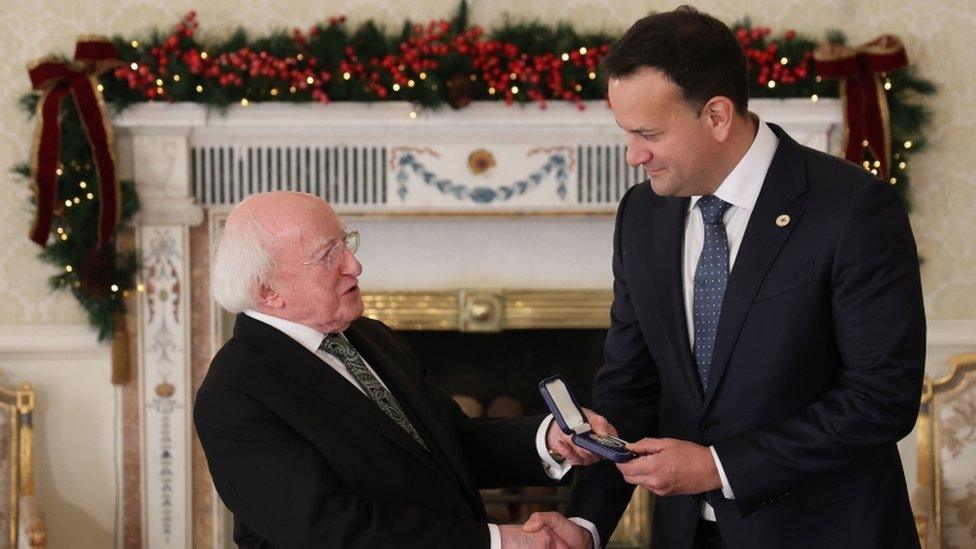Leo Varadkar: 'Unthinkable' swap-at-the-top of Irish politics
- Published
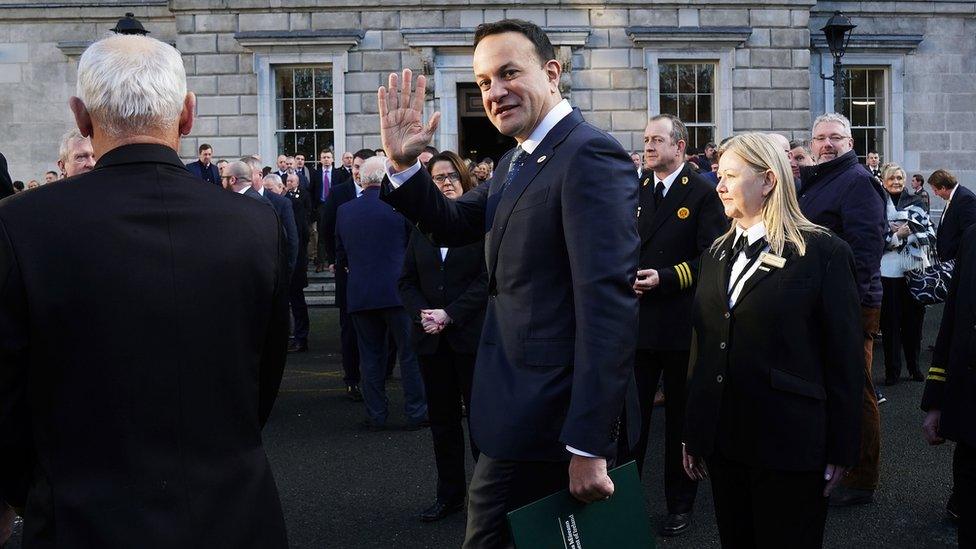
Leo Varadkar previously served as Taoiseach from 2017 to 2020
It is a swap-at-the-top which was unthinkable until recent years.
In the past, a coalition between Fianna Fáil and Fine Gael would have been thought to be as unlikely as Labour and the Conservatives going into government together in London.
The notion of one of the parties voluntarily handing over the office of the taoiseach (prime minister) to the other would have been akin to the Democrats ceding control of the White House to the Republicans - or vice versa.
Opposition politicians in Dublin argue there has never been much of an ideological difference between the historical 'big two'.
Their dominance was ended in the general election of 2020, when Sinn Féin surged to win the most first-preference votes and the second highest number of seats.
That result eventually brought together Fianna Fáil and Fine Gael to govern Ireland jointly for the first time.
The parties which grew out of the two sides in the Irish civil war, a century ago, are both broadly centrist by international standards - but had nonetheless been fierce electoral rivals.
They agreed to 'rotate' the most important job in Ireland, halfway through the coalition's term in power.
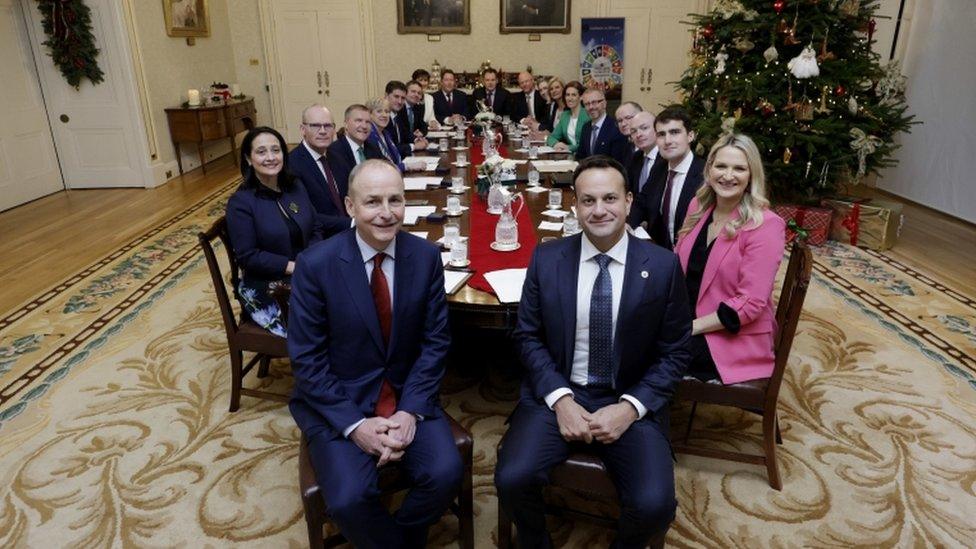
The rotation of power was agreed in the coalition agreement of 2020
The switch of taoiseach has brought about another interesting moment in history.
Ireland and its nearest neighbour, the UK, are now both led by men of Indian heritage.
Mr Varadkar's relations with Rishi Sunak will be particularly important in the context of the negotiations between London and the European Commission over the Brexit arrangements for Northern Ireland.
In Belfast, the Democratic Unionist Party (DUP) is currently vetoing the formation of a power-sharing devolved government in protest against the trade border with Great Britain caused by the protocol.
The DUP has said it will not relent until there is a move to scrap checks on goods arriving in Northern Ireland from England, Scotland and Wales.
'Re-building relations with unionism'
During Mr Varadkar's previous time as Taoiseach - from 2017 to 2020 - unionists often accused him of being overly nationalistic during the Brexit process.
They believe Mr Varadkar's stance played a large part in the creation of what they regard as an economic barrier which damages Northern Ireland's place in the UK.
The leader of the Ulster Unionist Party, Doug Beattie, has said that Mr Varadkar has "a lot of work to do in re-building relations with unionism".
There was a hint of an acknowledgement of that in the new taoiseach's speech to the Dáil (Irish Parliament), when he pledged to work to restore power-sharing in Northern Ireland.
He said: "We must set aside our differences, forgive past mistakes on all sides, and seek a new beginning in a new spirit of friendship and understanding."
Unionists were more positive about their relationship with Micheál Martin as taoiseach.
Mr Martin is retaining a prominent role in working on Northern Ireland - he has taken over from Simon Coveney as the Irish Foreign Minister.
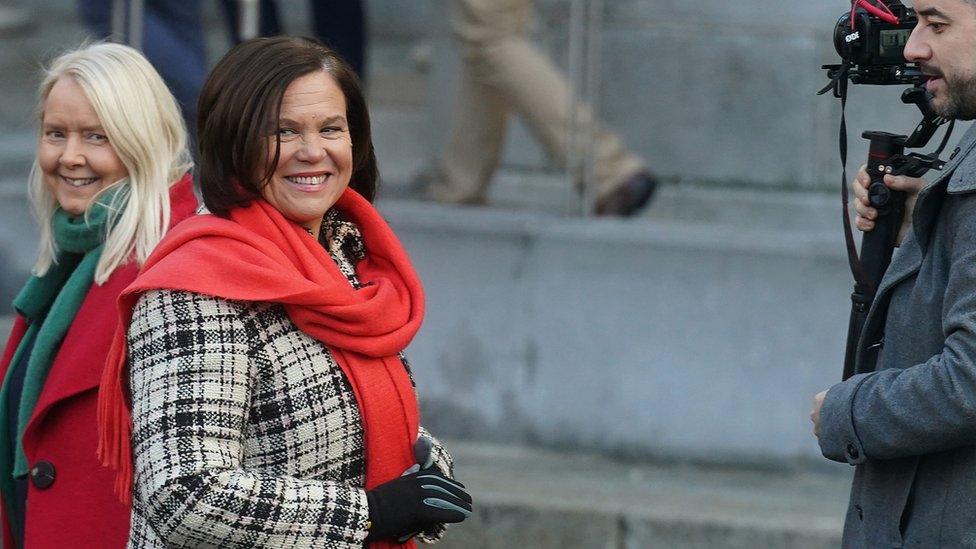
Polls suggest the Sinn Féin leader, Mary Lou McDonald, is on course to replace Mr Varadkar as taoiseach in the next Dáil election
Sinn Féin is the largest party in the Northern Ireland Assembly, as well as the main opposition party in the Dáil.
The party's vice-president, Michelle O'Neill, is in line to be the first minister in Belfast if a Stormont Executive is formed.
Polls suggest the Sinn Féin leader, Mary Lou McDonald, is on course to replace Mr Varadkar as Taoiseach in the next Dáil election, due in 2025.
That scenario would lead Sinn Féin to push hard for a referendum on a united Ireland to be held before the end of the decade.
To try to win back ground Mr Varadkar will attempt to convince voters he can deal with challenges in housing, healthcare, and the economy.
- Published10 February 2020
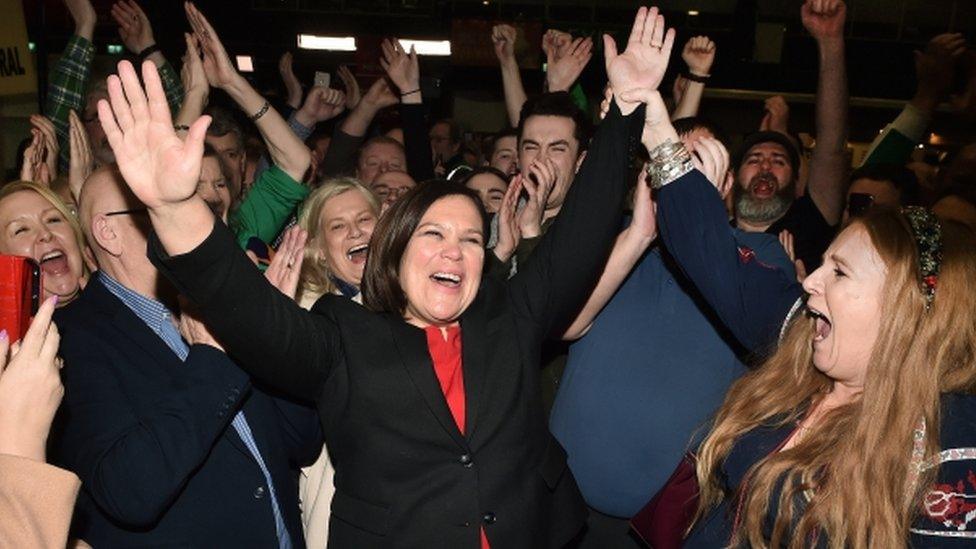
- Published13 February 2020
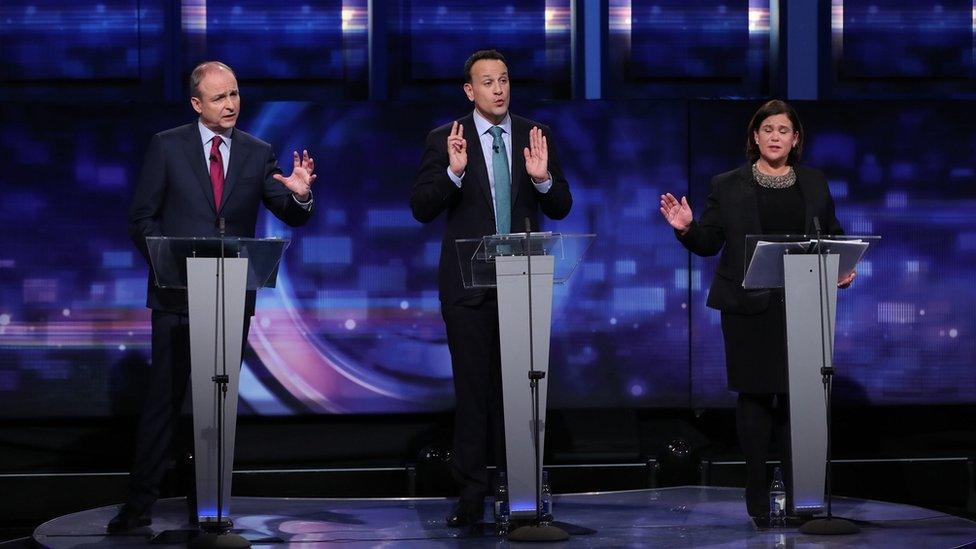
- Published17 December 2022
